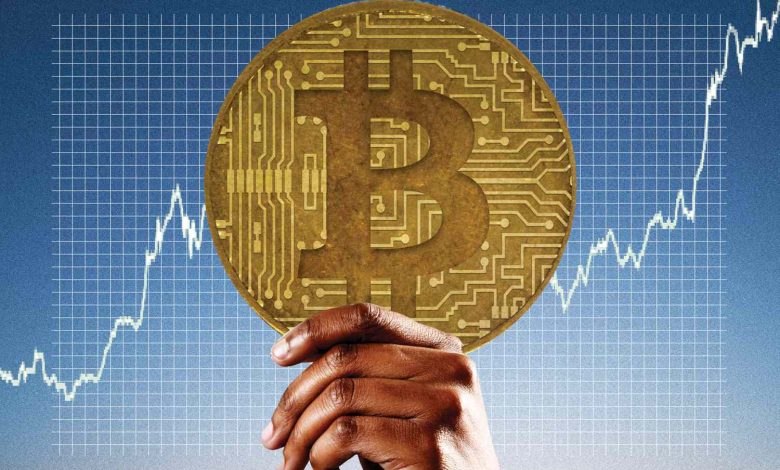Bitcoin: The Digital Gold Shaping a Decentralized Future

Introduction: A Currency Born of Disruption
In the wake of the 2008 global financial crisis, when the world’s faith in traditional banking systems teetered, an enigmatic figure—known only by the pseudonym Satoshi Nakamoto—released a white paper that introduced Bitcoin. More than a mere digital currency, Bitcoin was conceived as a rebellion against centralized monetary authority and opaque banking practices. Today, over a decade later, Bitcoin has evolved into both an investment phenomenon and a technological marvel, sparking debates from Wall Street boardrooms to rural internet cafés.
Understanding the Foundation: Blockchain Technology
At its heart, Bitcoin runs on blockchain—a decentralized, immutable ledger that records transactions transparently. Each “block” contains a batch of verified transactions, cryptographically linked to the preceding block, forming an unbroken “chain.” This structure ensures that once data is recorded, altering it becomes computationally impractical, protecting Bitcoin’s integrity from fraud and tampering.
How Bitcoin Works: Mining and Transactions
Bitcoin’s supply is capped at 21 million coins—a finite limit that mimics precious metals like gold, hence its moniker “digital gold.” New Bitcoins enter circulation through a process called mining. Here’s how it works:
-
Miners use high-powered computers to solve complex mathematical puzzles.
-
Successful miners validate transactions and add new blocks to the blockchain.
-
In return, miners receive newly minted Bitcoins and transaction fees.
This mechanism not only issues new coins but also secures the network, as manipulating the blockchain would require an immense amount of computational power—making fraud economically unfeasible.
The Appeal: Why Bitcoin Attracts Investors
Bitcoin’s allure lies in its unique characteristics that contrast sharply with traditional fiat currencies:
-
Scarcity: The hard cap ensures that Bitcoin cannot be inflated at will by any government or central bank.
-
Decentralization: There is no single entity that controls Bitcoin. Its network is maintained by thousands of nodes spread worldwide.
-
Borderless Transactions: Bitcoin allows peer-to-peer transactions across borders, often with lower fees and without the need for intermediaries.
-
Store of Value: For many, Bitcoin represents a hedge against inflation and political instability, akin to gold.
Bitcoin’s Volatility: Opportunity or Risk?
While its potential rewards are tantalizing, Bitcoin’s volatility cannot be ignored. Its price has swung dramatically over the years—surging from mere cents to tens of thousands of dollars per coin. Several factors fuel this volatility:
-
Speculation: Investor sentiment and speculative trading often drive sharp price movements.
-
Regulatory News: Announcements from governments regarding crypto regulation can trigger instant market reactions.
-
Technological Developments: Upgrades to the Bitcoin network or innovations in related technologies can affect confidence and adoption.
For seasoned investors, this volatility is a double-edged sword—offering both lucrative opportunities and significant risks.
The Broader Impact: Beyond Currency
Bitcoin’s influence extends far beyond being a digital asset. It has catalyzed an entire industry around decentralized finance (DeFi) and inspired thousands of other cryptocurrencies, each attempting to solve different problems. Moreover, blockchain’s applications are now being explored in supply chains, voting systems, and digital identity management.
Environmental Concerns: The Energy Debate
A recurring criticism of Bitcoin is its massive energy consumption. Bitcoin mining, by design, requires vast computational power, which translates to substantial electricity usage. Critics argue that this undermines global efforts to combat climate change. However, the industry is responding:
-
Some mining operations are migrating to renewable energy sources.
-
Innovations such as the Lightning Network aim to increase transaction efficiency, potentially reducing the overall energy footprint.
The debate continues, challenging the community to balance security and sustainability.
Regulation: Friend or Foe?
Governments worldwide wrestle with how to approach Bitcoin. Some countries have embraced it—El Salvador, for instance, made Bitcoin legal tender in 2021. Others have imposed strict bans or heavy-handed regulations, citing concerns over money laundering, tax evasion, and consumer protection.
The path of regulation will inevitably shape Bitcoin’s trajectory. Constructive, clear rules could legitimize it further and pave the way for broader adoption. Conversely, overly restrictive measures may push innovation underground or stifle the potential benefits.
Practical Considerations for New Investors
For those intrigued by Bitcoin’s promise, it’s wise to approach with due diligence and a clear strategy. Consider these tips:
-
Educate Yourself: Understand how Bitcoin works, its risks, and its potential before investing.
-
Use Reputable Exchanges: Opt for platforms with robust security measures and transparent fee structures.
-
Secure Your Holdings: Store Bitcoin in secure wallets—hardware wallets are recommended for larger sums.
-
Diversify: While Bitcoin can be part of a diversified portfolio, investing solely in it exposes you to high volatility.
Conclusion: The Road Ahead
Bitcoin’s journey is far from over. As it matures, it will continue to face technological hurdles, regulatory battles, and environmental scrutiny. Yet its core promise—a decentralized, transparent system that challenges conventional notions of money—remains compelling.
For some, Bitcoin is speculative folly. For others, it’s a lifeline against unstable currencies and authoritarian regimes. Regardless of perspective, one fact is indisputable: Bitcoin has carved out a permanent chapter in the story of money. Whether it becomes a widely adopted global currency or remains a volatile store of value, its impact on finance, technology, and society is profound.
In this evolving landscape, Bitcoin is not merely an investment or a payment system—it is an idea, and ideas, as history reminds us, have the power to reshape the world.




